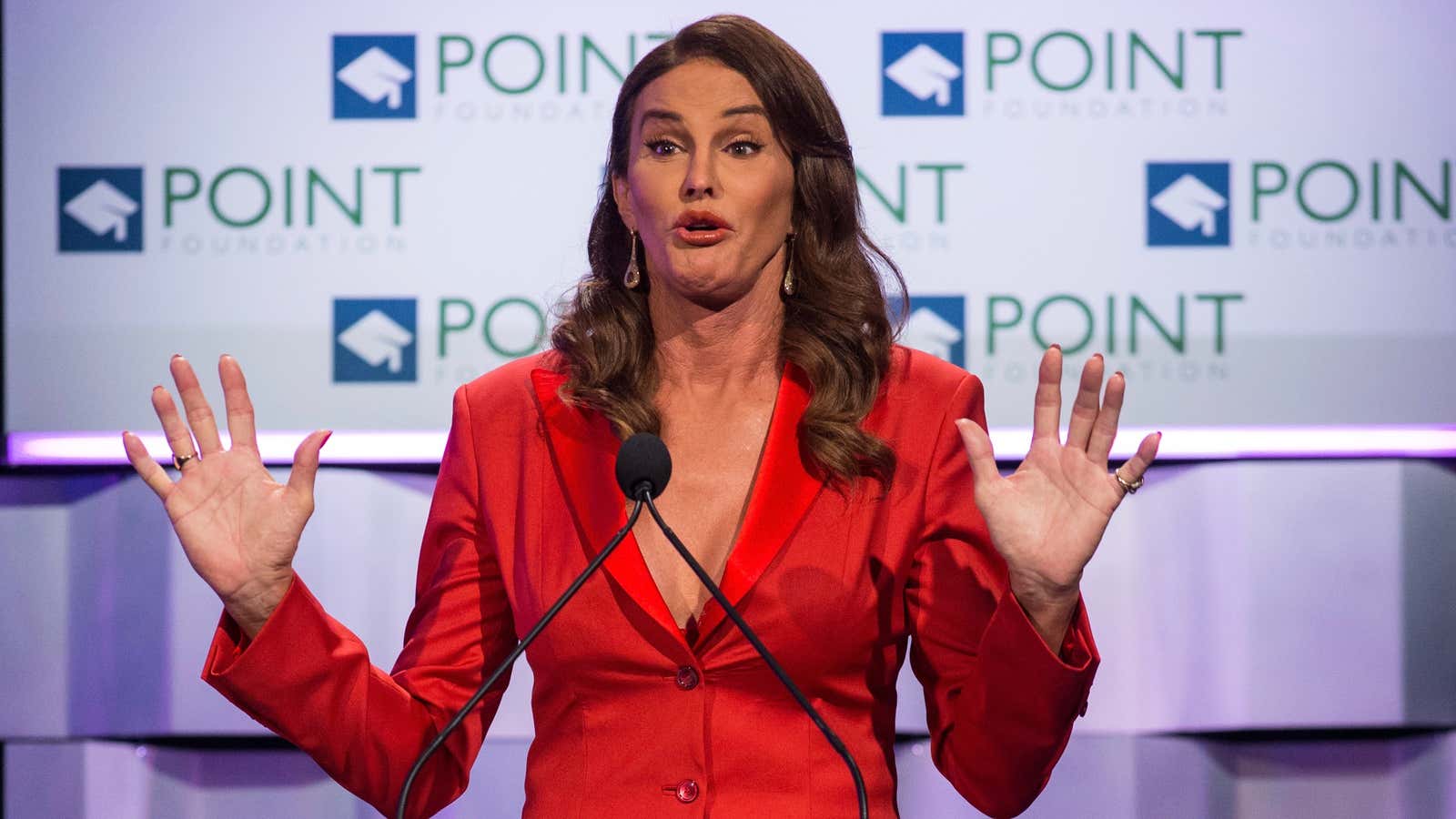African audiences will be seeing less of Caitlyn Jenner after complaints from Nigeria saw her reality show “I Am Cait” cancelled across the continent. MultiChoice, Africa’s largest satellite television platform which operates under the DStv brand in Nigeria, pulled the show from its local E! Entertainment channel after complaints from Nigeria’s broadcast regulator, according to reports.
“MultiChoice recognizes the importance of respecting the views of its customers and all regulatory environments within which its service operates,” the company said in a statement. The show was removed from the DStv and GOtv channels with immediate effect. The move could mean the conservative views of one country, albeit the most populous, dictate what everybody else watches on TV across the continent.
In October last year, DStv removed “I am Jazz” a reality show that chronicles the life a transgender teen after complaints in Nigeria. “I Am Cait” follows the retired Olympic champion and reality star’s journey after she came out as transgender. While Jenner has at times proven to be a problematic public voice for LGBTQI issues, her public transition has been lauded. In April, Jenner’s show won Outstanding Reality Program at the GLAAD Media Awards, an award shared with “I am Jazz.”
Earlier this year, as MultiChoice increased its subscription fees in South Africa, it slashed prices in Nigeria where it hopes to attract more customers. With a customer base in 5.4 million households, the company holds much sway over Africa’s access to pop culture.
Removing these shows could force Africa’s LGBTQI community deeper into the shadows, as a positively reinforcing image is yanked from public view. Being gay is illegal in still too many African states and many societies have not even begun to grapple with transgender rights. For one transgender woman who opened up to the BBC, the only way to live was to leave Nigeria. Modern Nigeria’s social mores are often influenced by conservative religious values from local Christian and Islamic leaders.
While conservative audiences balk at the idea of imported reality shows bringing transgender experiences to their television screens, authentic African transgender stories can live and thrive online.
One example is the Pearl of Africa webseries which follows Cleopatra Kambugu, a Ugandan woman as she transitions. Kambugu is one of the “top 200 homosexuals” outed by a tabloid after Uganda declared homosexuality illegal in 2014. Like many, she lost her job, was abandoned by friends and family and forced to hide in her home behind high walls and barbed wire as mobs threatened to beat her to death.
The Pearl of Africa, a play on Uganda’s nickname, documents Kambugu’s transition after fleeing to neighboring Kenya and highlights her activism. But it also a love story. The poignant scenes of Nelson (affectionately called Nellie) and Cleopatra’s relationship is juxtaposed with violent news coverage showing public beatings and the homophobic slurs that pass as legislation and church sermons.
“For a long time what gave me strength was the fact that I wanted to disprove people. The more negativity I received, the more resilient I became,” says Kambugu. “But I hope people could come to understand and look back at history and see those superficial divides that have divided humanity and see how unimportant they are. Because gender is just another thing.”
